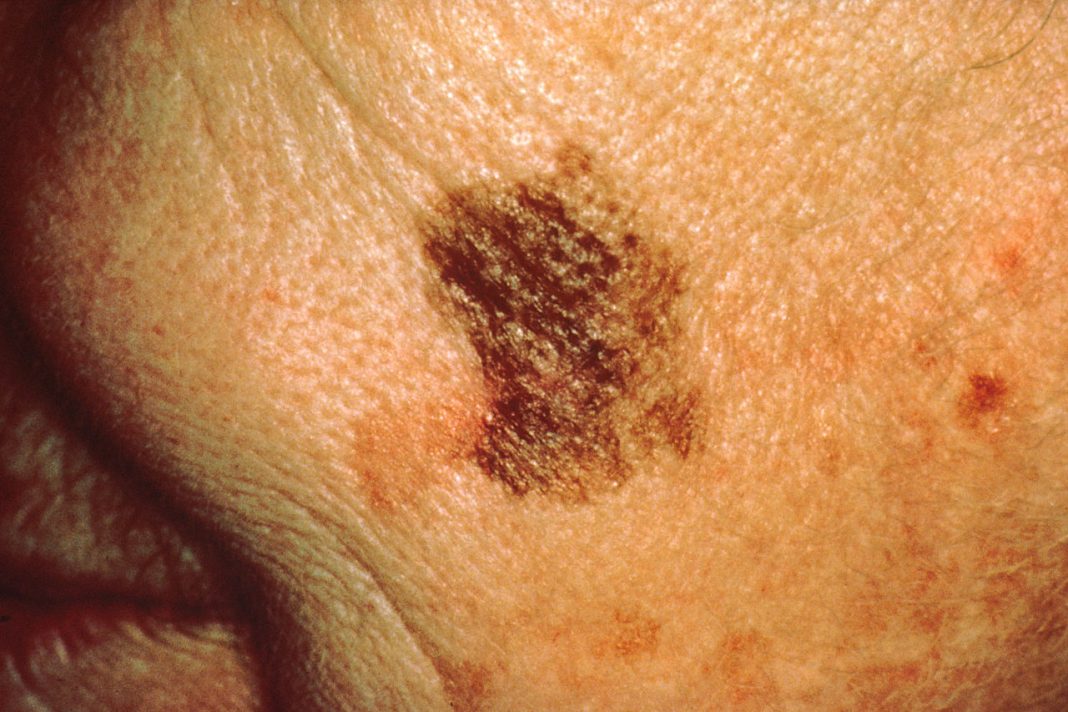Melanoma, the most serious type of skin cancer, develops in the cells (melanocytes) that produce melanin—the pigment that gives your skin its color. Melanoma can also form in your eyes and, rarely, inside your body, such as in your nose or throat. The best treatment for melanoma depends on the size and stage of cancer, but some treatments available include surgery, chemotherapy, and radiation therapy. Now, researchers report a new treatment that can possibly be added to the list, antibiotics. Scientists at KU Leuven, Belgium, examined the effect of these antibiotics on patient-derived tumors in mice.
Their findings were published in the Journal of Experimental Medicine, in an article titled, “Activation of the integrated stress response confers vulnerability to mitoribosome-targeting antibiotics in melanoma.”
“The ability to adapt to environmental stress, including therapeutic insult, contributes to tumor evolution and drug resistance,” wrote the researchers. “In suboptimal conditions, the integrated stress response (ISR) promotes survival by dampening cytosolic translation. We show that ISR-dependent survival also relies on a concomitant up-regulation of mitochondrial protein synthesis, a vulnerability that can be exploited using mitoribosome-targeting antibiotics.”
The researchers discovered that these antibiotics exploit a vulnerability that arises in tumor cells when they try to survive cancer therapy.
“As the cancer evolves, some melanoma cells may escape the treatment and stop proliferating to ‘hide’ from the immune system. These are the cells that have the potential to form a new tumor mass at a later stage,” explained cancer researcher and RNA biologist Eleonora Leucci (KU Leuven). “In order to survive the cancer treatment however, those inactive cells need to keep their ‘power plants’—the mitochondria—switched on at all times.” As mitochondria derive from bacteria that, over time, started living inside cells, they are very vulnerable to a specific class of antibiotics. This is what gave us the idea to use these antibiotics as anti-melanoma agents.”
They implanted patient-derived tumors into mice, which were then treated with antibiotics.
“The antibiotics quickly killed many cancer cells and could thus be used to buy the precious time needed for immunotherapy to kick in. In tumors that were no longer responding to targeted therapies, the antibiotics extended the lifespan of—and in some cases even cured—the mice,” explained Leucci.
The researchers worked with antibiotics that are now, because of rising antibiotic resistance, only rarely used in bacterial infection. However, this resistance has no effect on the efficacy of the treatment in this study, explained Leucci. “The cancer cells show high sensitivity to these antibiotics, so we can now look to repurpose them to treat cancer instead of bacterial infections.”
“Our findings are based on research in mice, so we don’t know how effective this treatment is in human beings. Our study mentions only one human case where a melanoma patient received antibiotics to treat a bacterial infection, and this re-sensitized a resistant melanoma lesion to standard therapy. This result is cause for optimism, but we need more research and clinical studies to examine the use of antibiotics to treat cancer patients. Together with oncologist Oliver Bechter (KU Leuven/UZ Leuven), who is a co-author of this study, we are currently exploring our options.”
Further studies are needed, but the new findings may lead to antibiotics being used one day to treat melanoma in humans.


